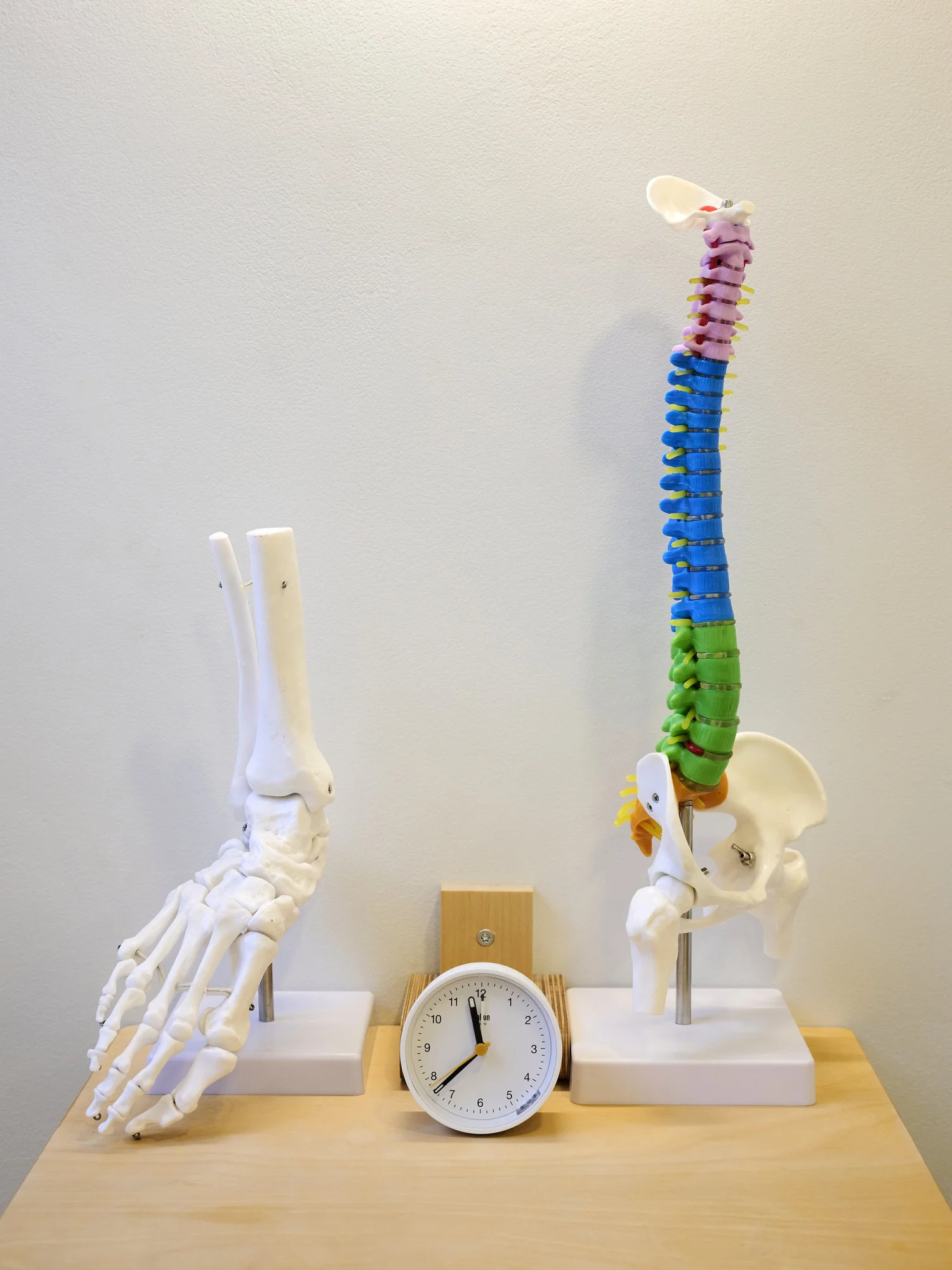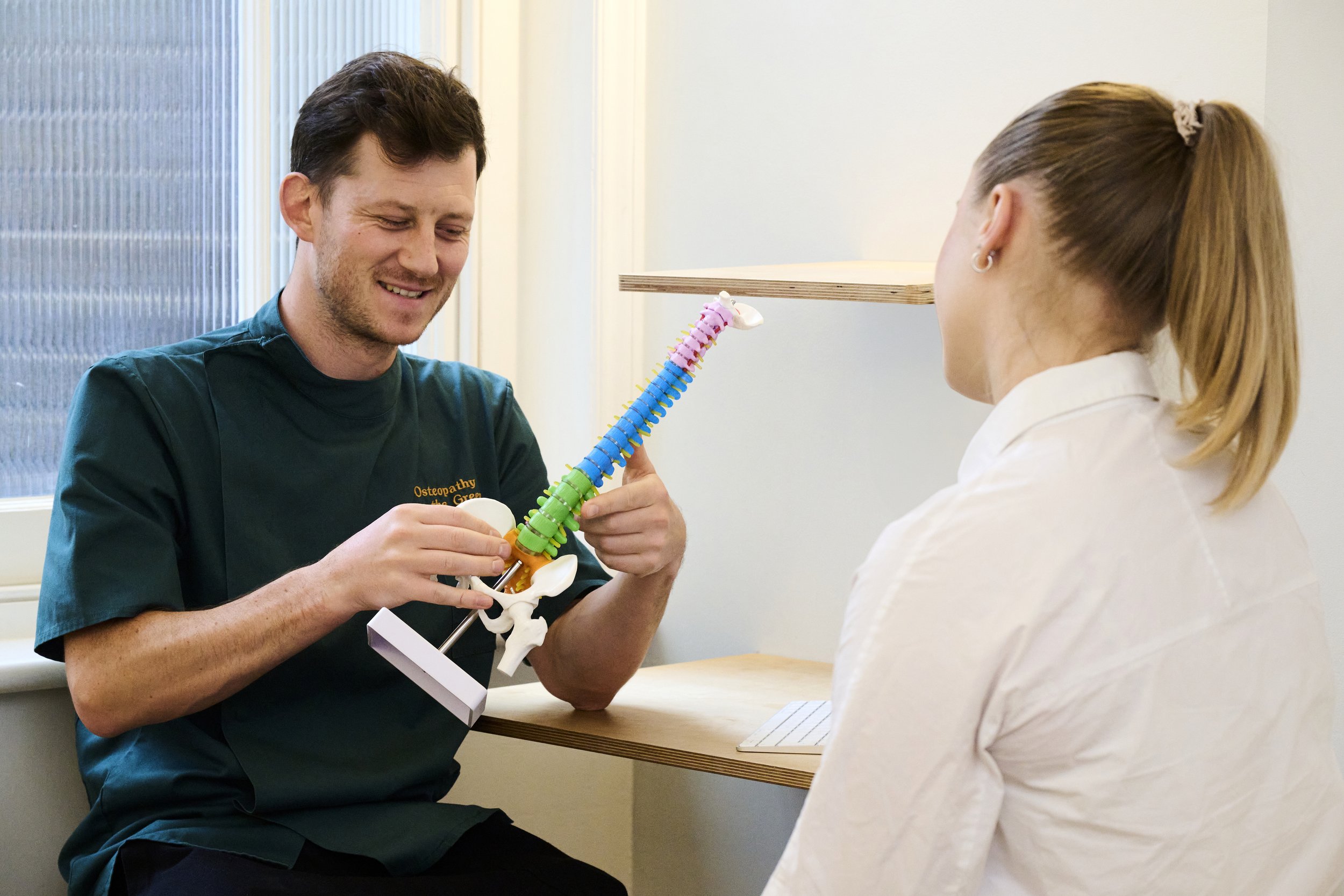What you can expect from visiting an osteopath
Osteopathy is a University Masters (4 years) degree, graduates are experts in musculoskeletal health who specialise in looking at the way the body's mechanics work. In practice, this means they are highly trained to help patients identify why their body may be causing muscular or skeletal pain, and aim to help provide information as well as advice to help prevent or limit the pain in the short, mid or long term.
When visiting an osteopath for the first time it is natural to feel a little unsure of what to expect. The main thing to remember is that our osteopaths are highly experienced and are there to try to help you with use of their extensive knowledge. Osteopathy is a great treatment option for patients with:
Arthritic Pain
Rheumatic Pain
Back Pain (Lower back pain and Upper back pain)
All Sports Injuries
Pregnancy aches and pains
Whiplash injuries (pain following the specific “front to back” movement in a car accident/rollercoaster ride etc)
Jaw pain and Neuralgia
Neck Pain and Headaches
Shoulder Pain (inc. inflammation following a frozen shoulder)
Hip pain
Carple Tunnel
Sciatica
Sports Injuries
Back Pain in Pregnancy
Aches and pains associated with a patient’s posture or work
RSI
Postural tension
Groin Pain
Pain from chronic inflammatory illnesses
Pain or discomfort resulting from congenital abnormalities
Because osteopaths see people with so many different complaints, it’s difficult to summarise how they treat and what each patient may expect from a session. That said, they generally look at posture, gait (how you walk), stress tension, or pain resulting from degeneration or inflammation of a joint or muscle area (for example that can result from repetitive movement, an injury or degenerative conditions such as arthritis).
It is important to remember that osteopaths are not medical doctors, and therefore are unable to prescribe painkillers or refer you directly for investigative scans. Please do check NHS online (www.nhs.uk) and follow their “red flag” advice with regards to if you need screening from a GP first. If the osteopath suspects something more sinister or they need more information from further investigations, they will suggest you go to see your GP.
Depending on your complaint, the osteopath may suggest you remove certain items of clothing so they can assess a more detailed picture of what is going on. If you feel uncomfortable doing so, the osteopath will always try to work around that, so you feel safe and at ease.
It may be a good idea to bring shorts and/or a sports bra or vest top to the appointment.

